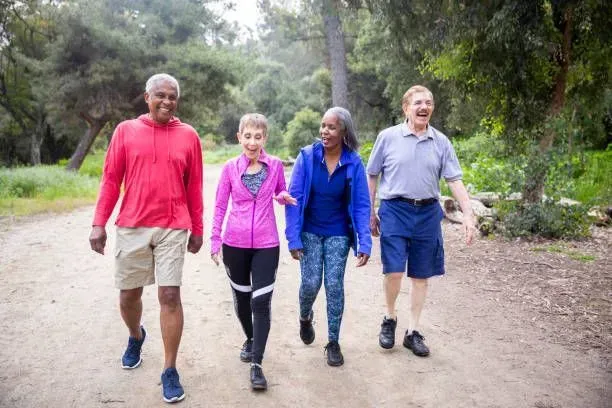7 Tips to Improve Your Memory
7 Tips To Improve Your Memory
Mayo Clinic explains "typical age-related memory loss doesn't cause a major disruption in your daily life. For example, you might occasionally forget a person's name, but recall it later in the day. You might misplace your glasses sometimes. Or maybe you need to make lists more often than in the past to remember appointments or tasks. These changes in memory are generally manageable and don't affect your ability to work, live independently or maintain a social life."
7 Day Home Care is licensed by the New York State Department of Health to provide in-home care services throughout Roslyn, as well as Manhattan, Queens, Brooklyn, Nassau County, and Suffolk County, New York.

Are You Searching for a Home Care Agency Near Me
to Provide Companionship for Your Loved One?
Memory is a vital aspect of our daily lives, affecting everything from simple daily tasks to complex professional responsibilities. Maintaining and improving memory can significantly enhance our quality of life, especially as we age. At 7 Day Home Care, we understand the importance of cognitive health, and we are here to support you or your loved ones in achieving optimal mental well-being. Below are seven effective tips to help improve your memory.
Companionship holds immense value, particularly in home care settings where personalized attention can significantly enhance a client's overall well-being. A home care agency that prioritizes caregiver-client matching ensures that caregivers are not only skilled but also compatible with clients' personalities and needs, fostering meaningful relationships. This personalized approach promotes emotional support, reduces feelings of loneliness, and enhances mental health. The resulting positive social interactions can stimulate cognitive function, aiding in memory retention and overall mental sharpness. By creating a nurturing and supportive environment, caregiver-client matching contributes to the holistic well-being of clients, encompassing both mental and emotional health.
1. Prioritize Mental Exercises
Just as physical exercise is vital for maintaining physical health, mental exercises are equally important for preserving and enhancing cognitive fitness. Regularly engaging in activities that challenge and stimulate your brain can significantly bolster memory and overall cognitive function. These mental exercises act like workouts for the brain, promoting neural growth, strengthening existing neural connections, and fostering new ones. Activities such as solving puzzles, learning new skills, reading complex material, and even playing strategic games can keep your mind sharp. These exercises not only enhance memory retention but also improve problem-solving abilities, attention to detail, and processing speed. By consistently participating in intellectually stimulating tasks, you can effectively support and improve your brain's health and functionality over time.
Mental Exercise Tips:
- Puzzles and Games: Crossword puzzles, Sudoku, and other brain games can stimulate your mind.
- Reading and Writing: Regularly reading books, newspapers, or articles, and writing essays or even journaling can keep your mind sharp.
- Learning New Skills: Take up a new hobby or learn a new language. This not only improves memory but also increases brain plasticity.
Benefits:
- Enhances problem-solving skills.
- Improves focus and concentration.
- Delays cognitive decline associated with aging.
2. Maintain a Healthy Diet
Nutrition plays an indispensable role in maintaining and enhancing brain health, as the foods we consume directly influence our cognitive functions and memory capabilities. A well-balanced diet rich in essential nutrients provides the brain with the necessary fuel to operate efficiently and stay healthy. Omega-3 fatty acids, found in fatty fish like salmon and mackerel, flaxseeds, chia seeds, walnuts, and fish oil supplements, are crucial for maintaining the structural integrity of brain cells. These fatty acids help reduce inflammation, promote neural growth, and enhance communication between brain cells, leading to improved memory and cognitive function. Antioxidants, present in foods like berries, dark chocolate, and green tea, protect brain cells from oxidative stress and free radical damage, which can deteriorate cognitive functions. Vitamins such as B12, E, and D, along with minerals like magnesium, further support brain health by aiding in neurotransmitter synthesis, protecting neurons, and promoting proper blood flow to the brain. By ensuring a diet abundant in these essential nutrients, we can support cognitive function, enhance memory, and protect the brain from age-related decline.
Diet Tips:
- Omega-3 Fatty Acids: Found in fish like salmon, walnuts, and flaxseeds, omega-3 fatty acids are vital for brain health.
- Antioxidants: Berries, dark chocolate, and green tea are rich in antioxidants, which protect brain cells from damage.
- Vitamins and Minerals: Ensure adequate intake of vitamins like B12, E, and D, as well as minerals like magnesium.
Benefits:
- Supports overall brain health.
- Reduces inflammation and oxidative stress in the brain.
- Enhances neural communication.
3. Stay Physically Active
Regular physical activity is immensely beneficial not only for your body but also for your brain. Engaging in consistent exercise increases blood flow to the brain, supplying it with more oxygen and essential nutrients, which can significantly enhance memory and cognitive function. Aerobic exercises such as walking, running, and swimming are particularly effective in boosting heart rate and improving overall cardiovascular health, which in turn supports brain health. Strength training exercises, including weightlifting and resistance workouts, also contribute by promoting the release of growth factors that foster the formation of new neuronal connections. Furthermore, activities that improve flexibility and balance, such as yoga and tai chi, help reduce stress and anxiety, which can negatively impact cognitive function. By incorporating a variety of physical activities into your routine, you not only improve physical fitness but also stimulate brain function, enhancing memory, focus, and overall mental clarity.
Exercise Tips:
- Aerobic Exercise: Activities like walking, swimming, and cycling increase heart rate and improve blood flow to the brain.
- Strength Training: Lifting weights or doing body-weight exercises can also contribute to cognitive health.
- Flexibility and Balance: Yoga and tai chi not only improve physical health but also reduce stress and anxiety, which can impact memory.
Benefits:
- Promotes the growth of new brain cells.
- Reduces the risk of cognitive decline and dementia.
- Improves mood and reduces stress.
4. Get Adequate Sleep
Sleep is essential for memory consolidation, as it is during this time that the brain processes and stores information gathered throughout the day, making it crucial for memory retention and cognitive function. During different stages of sleep, particularly deep sleep and REM (Rapid Eye Movement) sleep, the brain actively organizes and integrates new information, transferring memories from short-term storage in the hippocampus to long-term storage in the cortex. This process not only solidifies new memories but also strengthens neural connections and prunes unnecessary ones, optimizing brain efficiency. Adequate and quality sleep enhances the brain's ability to recall facts, skills, and experiences, thereby improving learning and problem-solving capabilities. Without sufficient sleep, the brain's capacity to consolidate and retrieve memories diminishes, highlighting the critical role of a consistent sleep routine in maintaining and boosting memory retention and overall cognitive health.
Sleep Tips:
- Establish a Routine: Go to bed and wake up at the same time every day.
- Create a Sleep-Friendly Environment: Ensure your bedroom is dark, quiet, and cool.
- Limit Screen Time: Avoid screens at least an hour before bedtime to reduce blue light exposure.
Benefits:
- Enhances memory consolidation.
- Improves cognitive function and attention.
- Reduces the risk of mental health issues.
5. Practice Mindfulness and Meditation
Mindfulness and meditation have been proven to enhance memory and cognitive function by significantly reducing stress and increasing focus. These practices involve training the mind to maintain a heightened state of awareness and presence, which helps calm the nervous system and decrease the production of stress hormones like cortisol. Lower stress levels contribute to better brain health, as chronic stress can damage the hippocampus, a crucial area for memory formation. Additionally, mindfulness and meditation improve attention and concentration by encouraging the brain to focus on the present moment, thereby strengthening neural pathways associated with these cognitive processes. Regular practice has been linked to increased gray matter density in brain regions related to memory, learning, and emotional regulation, further supporting overall cognitive function and memory retention.
Mindfulness Tips:
- Meditation: Start with just a few minutes a day and gradually increase the duration. Focus on your breath and try to clear your mind.
- Mindful Activities: Engage in activities like mindful walking or eating, where you pay close attention to the experience without distractions.
Benefits:
- Reduces stress and anxiety.
- Improves concentration and focus.
- Enhances memory and cognitive flexibility.
6. Socialize and Stay Connected
Social interactions are vital for mental health and cognitive function, as engaging with others stimulates the brain and enhances memory. Interacting with family, friends, and even new acquaintances provides mental stimulation through conversation, shared activities, and emotional connections, which challenge the brain to process complex social cues and information. These interactions help maintain and improve cognitive functions such as attention, problem-solving, and memory recall. Additionally, social engagement can reduce the risk of cognitive decline and mental health issues like depression and anxiety by fostering a sense of belonging and emotional support. Regular social activity encourages the brain to stay active and adaptable, reinforcing neural connections and promoting overall cognitive health.
Socializing Tips:
- Join Clubs or Groups: Participate in social clubs, book clubs, or hobby groups that interest you.
- Volunteer: Volunteering can provide a sense of purpose and opportunities to interact with others.
- Stay in Touch: Regularly connect with family and friends through phone calls, video chats, or in-person visits.
Benefits:
- Reduces feelings of loneliness and depression.
- Provides mental stimulation and cognitive engagement.
- Enhances emotional well-being.
7. Manage Stress Effectively
Chronic stress can significantly impair memory and cognitive function by causing hormonal imbalances and structural changes in the brain, particularly in areas like the hippocampus, which is crucial for memory formation. Prolonged exposure to stress hormones such as cortisol can lead to neural degeneration and decreased neurogenesis, resulting in diminished cognitive abilities and memory retention. Therefore, finding effective ways to manage stress is essential for preserving and improving memory. Techniques such as regular physical exercise, mindfulness meditation, deep-breathing exercises, and adequate sleep can mitigate the adverse effects of stress. These stress management strategies help maintain hormonal balance, promote neural growth, and enhance overall brain function, ultimately leading to better memory and cognitive health.
Stress Management Tips:
- Relaxation Techniques: Practice deep breathing, progressive muscle relaxation, or guided imagery.
- Time Management: Prioritize tasks and break them into smaller, manageable steps to avoid feeling overwhelmed.
- Healthy Lifestyle Choices: Engage in regular physical activity, eat a balanced diet, and ensure adequate sleep.
Benefits:
- Reduces the harmful effects of stress on the brain.
- Improves focus and concentration.
- Enhances overall mental health.
Improving memory involves a combination of mental exercises, a healthy diet, physical activity, adequate sleep, mindfulness, social interaction, and effective stress management. By incorporating these tips into your daily routine, you can enhance your cognitive function and maintain a healthy memory. The information provided in this article is intended for general knowledge and educational purposes only and should not be construed as medical advice. Always consult with a healthcare professional or a qualified specialist before making any changes to your diet, exercise routine, or lifestyle, especially if you have underlying health conditions or concerns.
At 7 Day Home Care, we are committed to supporting your cognitive health. If you or a loved one needs assistance with in-home care services, please do not hesitate to contact us at 516-408-0034. Our team of dedicated professionals is here to help you achieve and maintain optimal mental well-being.
Brian Callahan
7 Day Home Care


Living With Parkinson’s Disease: How In-Home Care Helps Seniors Stay Safe, Independent & Comfortable








